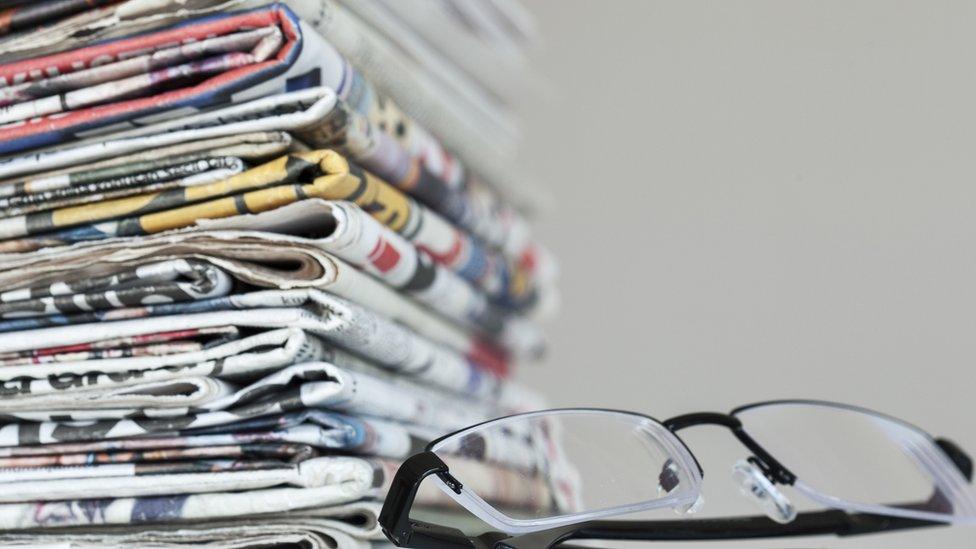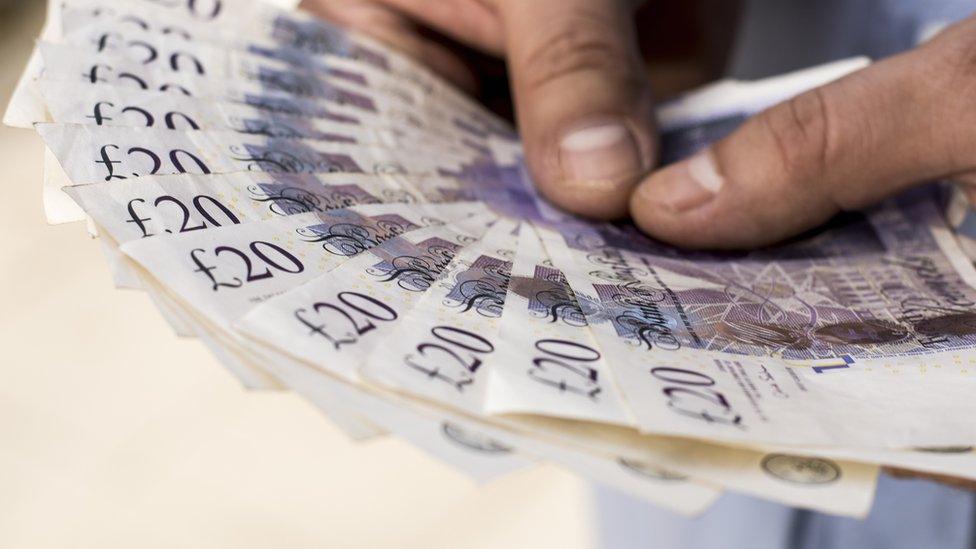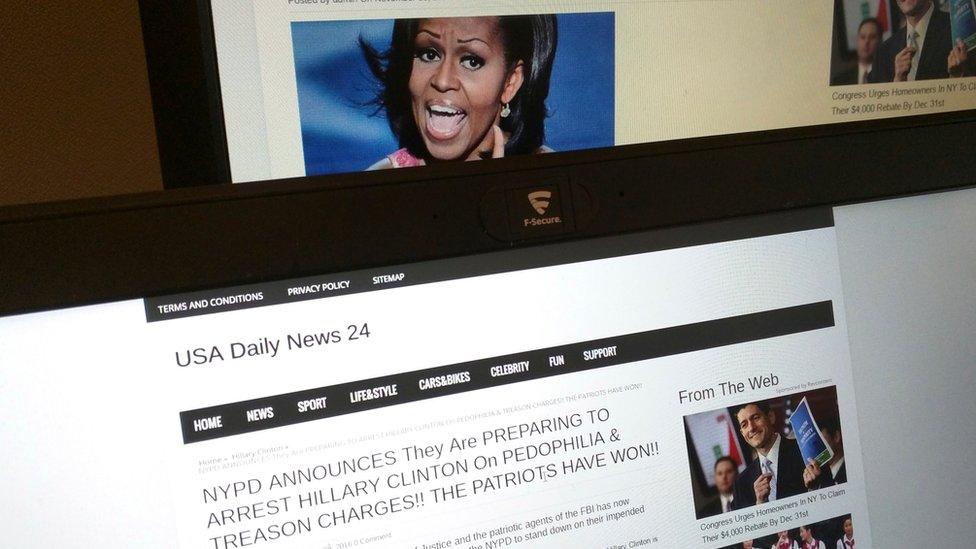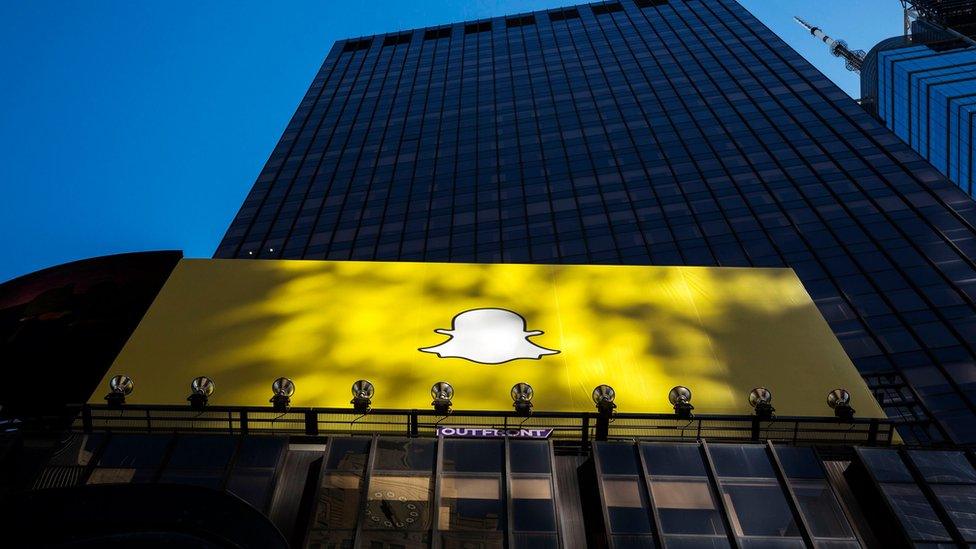Media: What to look out for in 2017
- Published

What will be the big themes in the media industry for 2017?
All the forces of change in the media industry are very likely to accelerate in 2017.
Be it the consolidation of companies, technological advances and even the future of the BBC, there will be lots happening.
Here are the 10 themes to look out for.
Pipes meet ideas
The big theme in the media business is the coming consolidation, usually between distributors and owners of content. In other words, those who own the pipes and those who tell the stories and ideas.
Why is this happening? It's simple. When there is such ferocious competition for eyeballs, the best way to ensure you reach big audiences is to own the delivery mechanism for reaching them.
The proposed (but far from certain) merger between AT&T and Time Warner fits into this theme, as does the (also far from certain) proposed deal between 21st Century Fox and Sky. Look out for Disney bidding for Netflix or Vice, and BT or Liberty bidding for ITV.

Big bids could see consolidation in the media industry
Consolidation also happens when you get sub-sectors that are highly populated while demand for their product is falling.
British newspapers fit this category very well. Fewer people are reading newspapers, yet there is (compared for instance to the US) a huge array of newspapers.
Expect, therefore, a few of them to be bought - perhaps the Daily Telegraph or Daily Express - and expect to hear more soon about the idea of the industry coming together to form a single advertising sales team.
Advertising in the age of Facebook and Google
Facebook and Google account for an ever-growing slice of digital advertising around the globe. Companies wholly dependent on digital advertising may therefore struggle to survive unless their cost bases are low.
The advertising industry is estimated at over $540bn (£440bn) annually. But the threats to it are growing, from "cord-cutting", whereby consumers ditch satellite and cable services for ad-free subscription services, to ad-blocking and widespread fraud, with concerns that many digital ads aren't seen by humans.
This was compounded by Facebook's admission that it had given advertisers false information about the videos seen on the social network.
All together, these pressures have damaged trust and confidence in this vast global industry. This year is going to be a tough one for many chief marketing officers.
The war on truth
I often wonder what philosopher AJ Ayer, who wrote the seminal Language, Truth and Logic in 1936, would have made of the phrase "post-truth politics".
I suspect he would have said plus ca change. And then he would have reminded us that whereas falsity comes by degrees, truth is absolute.

Fake news became a big factor in 2016
The idea that there are concrete facts we can agree on as a basis for civilised public conversation has taken a pounding of late. The rise of social media's echo chambers; growth in fake news; state propaganda broadcast in the West (whether Russian, Iranian, or Chinese); and the frenzied campaigns over Brexit and for the White House were all threats to the truth.
In 2017 it will be incumbent on all those who believe in truths to prove both that such things exist, and that they are worth knowing.
Paying for quality
World-class media only has a future if it is financially viable, and throughout the history of commerce, asking customers to pay for products they demand has been the surest guarantee of such viability.
Specialist publications from the Spectator to the Economist and the Financial Times have grown their subscriber bases by charging for digital access. So too have general publications like the Times and the New York Times.
If consumers recognise that quality costs and are willing to pay - which the growth of Netflix, Hulu and Amazon Prime suggests is the case in television - 2017 could provide fresh cheer.
Leveson Two
We should know in the coming weeks whether the second phase of the Leveson Inquiry will go ahead, and also whether Section 40 of the Crime and Courts Act - which requires papers to bear the costs of legal action brought against them, even if they win - will become law.
Whatever happens, Britain's newspaper industry won't accede to what it sees as state regulation of the press without one hell of a fight.
Reporting from danger zones
It should never be forgotten that in many parts of the world, being a journalist is still a subversive act.
I reported recently that, according to Reporters sans Frontiers, 74 journalists died doing their jobs in 2016.
This year, whether that number goes up or down, journalists are certain to be murdered, taken hostage, and used as blackmail.

A number of journalists were murdered in Mexico last year
The sheer danger of reporting from some parts of the world will make those areas information vacuums.
Social media abhors an information vacuum, so our knowledge of places such as Raqqa will continue, unfortunately, to depend on the use of social media by militant groups.
Pressure on the First Amendment
One of the most remarkable stories of 2016 was Peter Thiel's war on Gawker. The Silicon Valley entrepreneur was outed as gay by the gossip and news website.
In response, he funded a legal action brought by former wrestling champion Hulk Hogan (real name Terrence Bollea), who was furious about the site publishing a sex-tape in which he starred.
The action was successful, in so far as Thiel and Bollea won, rendering Gawker bankrupt. Gawker Media, the parent company, was bought by Univision but gawker.com, the flagship site, was shut down.
In a piece for the New York Times, Thiel said he would do it again. Which raises the question: will other rich individuals who can finance such legal actions be encouraged to take on media organisations?
Perhaps encouraged by Donald Trump's disdain for the "mainstream media" (Thiel was a Trump supporter), and the rise of the "alt-right", it's just possible that free speech will come under attack in America as never before.
Snapchat's IPO
Already threatening to overtake Twitter in many key measures, from its user base to market value, the video messaging app's much anticipated Initial Public Offering (IPO), scheduled for the spring, could value it between $20bn and $25bn.

Snapchat could be valued for as much as $25bn
There are thought to be well more than 10 million users in the UK already, and while Snapchat's growth among the under-30s gives it a unique appeal to advertisers, the really fascinating thing is how new forms of social media are changing our behaviour.
Teenagers across the country are sending each other videos - or "snaps" - several times a day. What is this doing to our sense of privacy, attention spans, and friendship circles? In 2017, we may begin to find out.
The BBC's next chapter
A new BBC chairman (or chairwoman) will be announced in the coming days. Whoever gets the role will need to lead a new governance structure, with the BBC Trust having been scrapped and regulatory oversight being passed to Ofcom.
With a new 11-year charter having come into force from 1 January, the BBC needs to find substantial savings, focus on "distinctive content" and compete with the new predators stalking the media jungle such as Netflix and Amazon Prime.
Aside from those challenges, managing the "Compete and Compare" strategy announced by director general Tony Hall in 2014, whereby many more programmes will be put out to tender rather than made in house, amounts to a radical rethink of the BBC's place within the industry and our culture more broadly.
Who owns Channel 4?
The future of Channel 4 remains unclear. There has been talk of privatisation, moving to Birmingham or further north, and selling the Channel 4 offices on Horseferry Road in London. A private equity fund could soon offer to buy the broadcaster. But there have been few decisions, as yet.
The anxiety this has induced in staff at Channel 4 is considerable. Chief executive David Abraham and chief creative officer Jay Hunt showed, with their purchase of Great British Bake Off, that they have immense editorial ambition.
With over £1bn in revenues for the sixth year in a row, the channel's unique model, as a public broadcaster that is commercially funded, has worked well.
In 2017, the broadcaster should - finally - discover what, and where, it's future will be.
More to come
Aside from all of the above, there are countless other media trends, themes and stories that will flare up in 2017.
Will Adam Crozier move on from ITV, having achieved a turnaround? How many more Chinese people will spend most of their waking hours on WeChat, the remarkable app that has few equivalents in the West? And will digital technology help create a flourishing media sector across Africa, South America and Asia?
So 2017 will be very exciting across media. Watch this space.